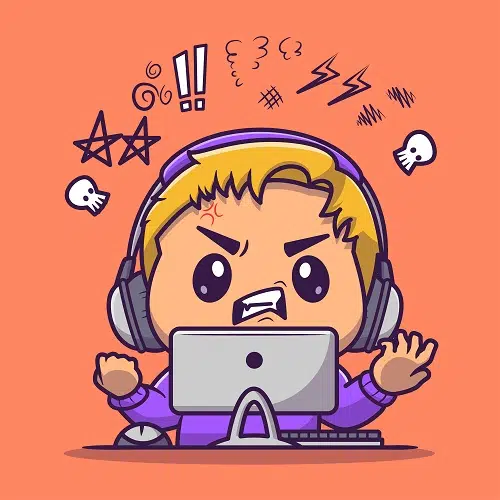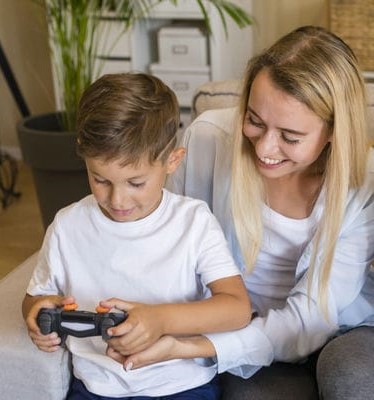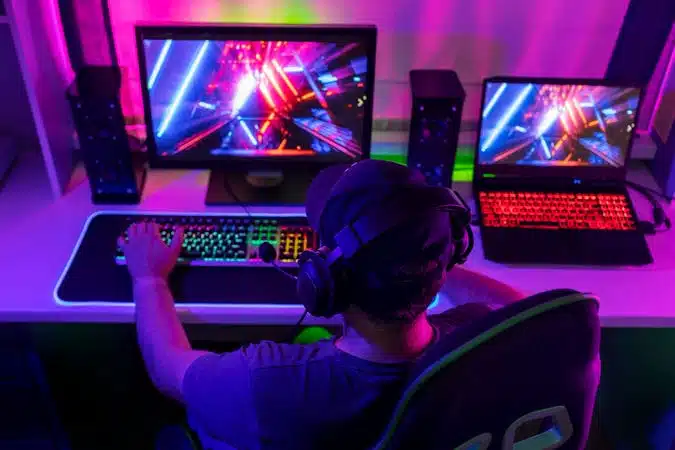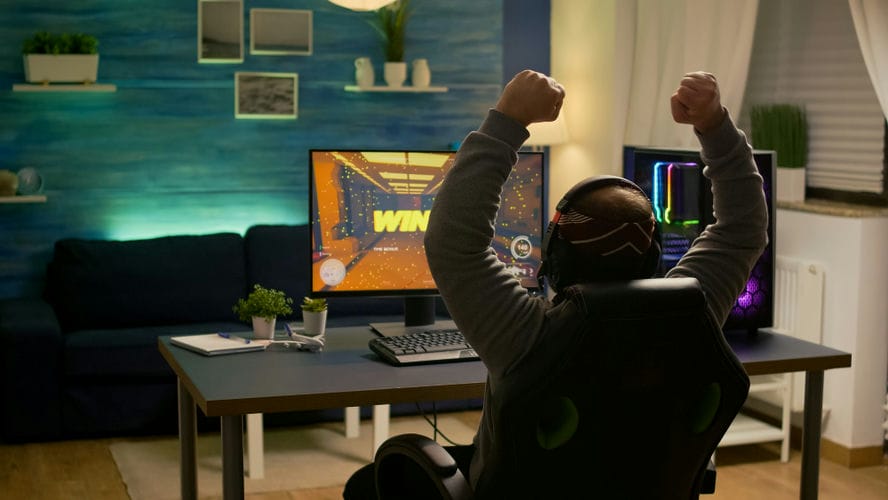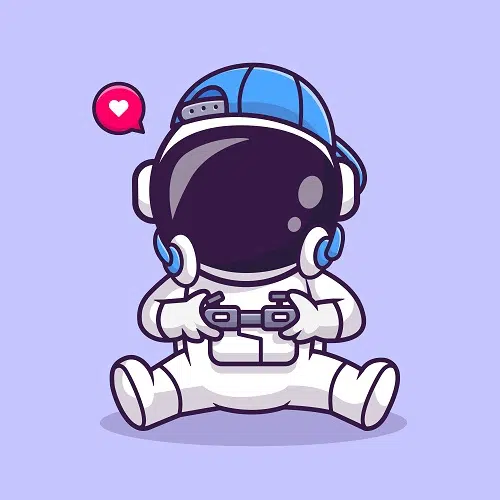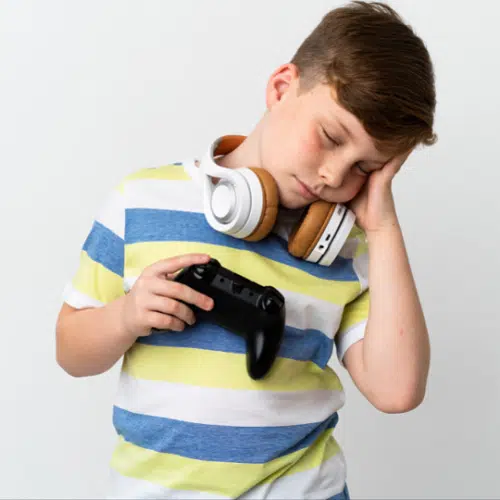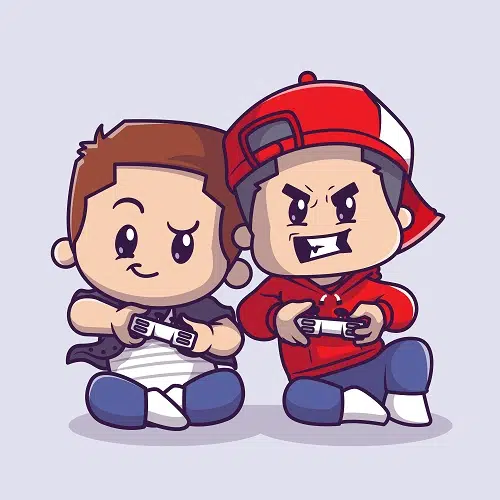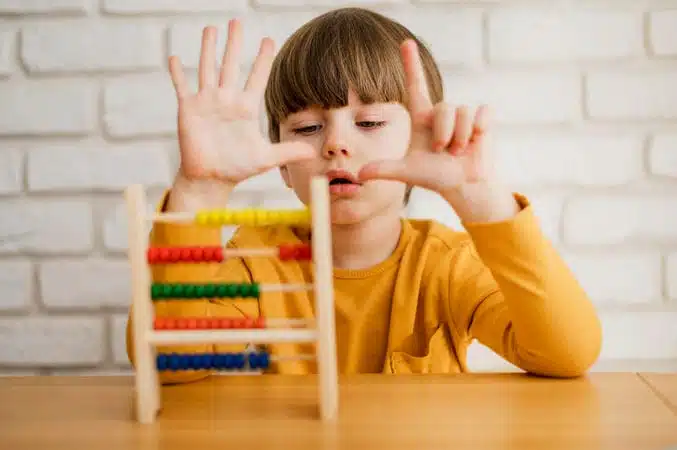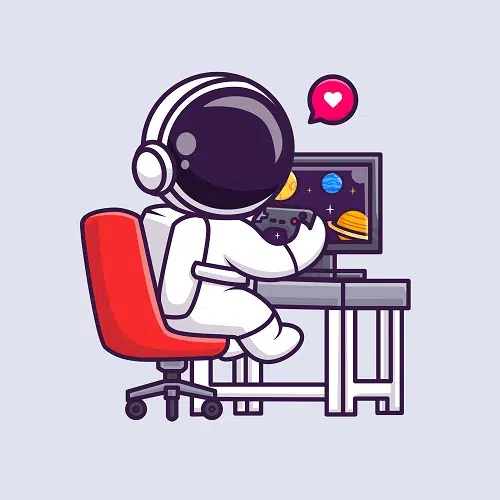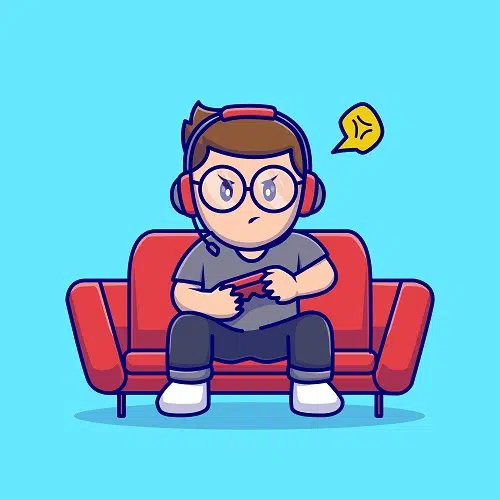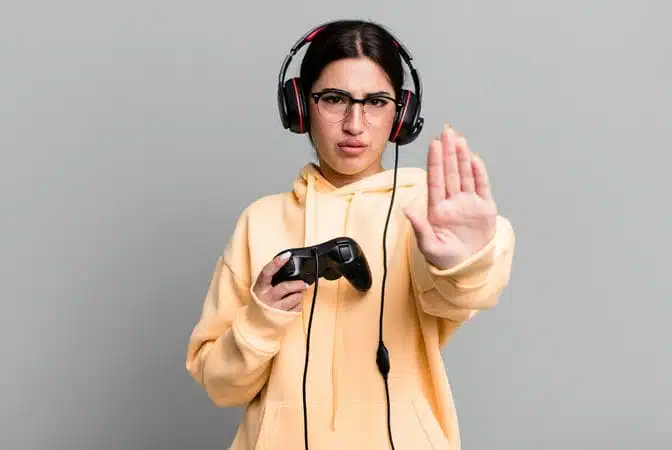With the growth of technology, it has become easier for children to access video games and playing online than before. As a result, more children are found sitting in front of the computer or game console for hours a day. But are there any negative effects associated with this that could be a cause for concern for parents?
Below, we’ll cover 11 adverse effects of video games parents should be wary of in their children. Some of these issues will overlap with one another, as many times, some negative effects will naturally lead to others. We’ll also discuss how you can avoid or overcome these common effects.
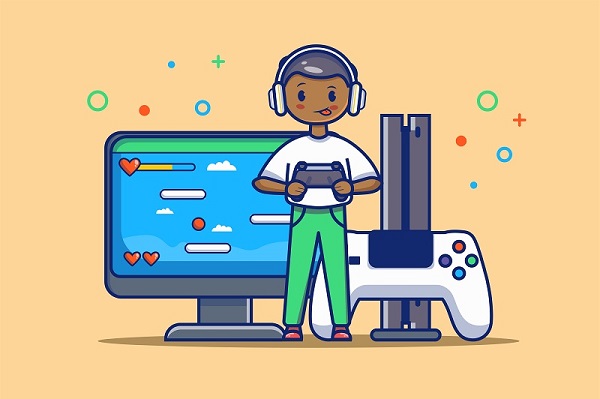
Relationship Problems
When gaming becomes the center of family problems, it is time to rectify the situation. Spending a lot of time on the computer has become a significant source of tension in many family homes.
Whether you are always arguing about the lack of chores or homework being done or the fact that relationships are suffering from the constant distraction. Gaming can undoubtedly become a relationship destroyer.
Another issue kids are facing today surrounds gaming and their friendships. Not only are kids putting their families on the back burner, but their friends as well. This leads to losing friends and facing social isolation.
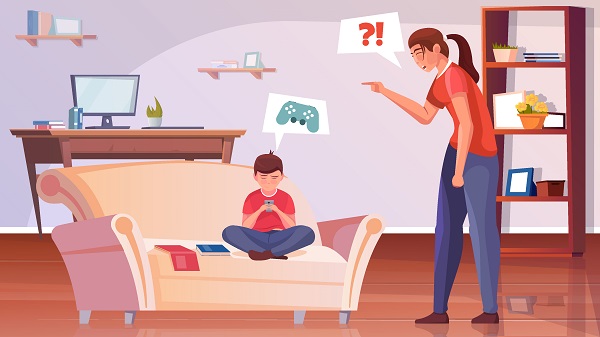
Social Isolation
If you have a child that loves playing video games on their computer and will spend a few hours alone trying to beat their favorite level, that’s one thing. However, if your child spends hours in their room away from family and friends, gaming may be becoming a problem.
Social isolation can occur when one plays video games alone for so long, they disconnect from other people. It can lead to physical and mental complications similar to what is observed with smoking, lack of exercise, and obesity.
These symptoms include but are not limited to:
- Depression
- Cardiac issues
- Sleep problems
- Impaired executive functioning
- Cognitive decline
- Lower immunity
Poor Performance in School
There are differing opinions about why children tend to do worse in school when they spend hours playing video games every day. The most common theory is that too much gaming can lead to a reduced attention span in children, which will negatively impact the way they work on their school assignments.
Another hypothesis is that the long hours of gaming runs into a child’s regular sleep schedule. With the lack of sleep will it cause a child to have trouble paying attention and do poorly in class.
Additionally, it is believed that if a child is playing aggressive video games, that may have a negative effect on their behavior. Which can present itself in the classroom.
Finally, it isn’t a far stretch to believe that homework and studying are no longer a priority when your child wants to be on their computer to play their favorite games instead.
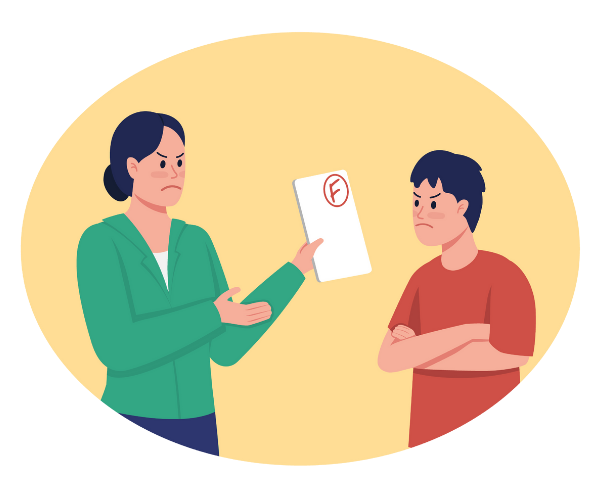
Sleep Deprivation
Another alarming conclusion from the CDC is that sleep deprivation is no longer only a concern for adults but also a large number of children. Excessive use of computer gaming can contribute to sleeping problems for many reasons that can negatively impact kids:
- Late-night stimulation: Playing aggressive or highly competitive games late at night can cause the brain to enter into a fight or flight mode. Which will raise your child’s blood pressure and heart rate, keeping them from feeling tired.
- High stimulation levels: When you are playing games on your computer, your body reacts, which increases your brain stimulation. As a result, you will be unable to relax enough to fall asleep.
- Staying up too late: Many kids, especially teens, choose to play games until late into the night. Which reduces the amount of time they get to sleep before waking for school.
- Lack of melatonin: Because the computer screen gives off blue light, your child’s brain will not naturally produce the melatonin it needs to inform the body it needs sleep, and your child won’t get a good night’s rest.

Obesity
Obesity on its own is a large problem in the world, and it’s not any less for children. According to the CDC, one in every five children or adolescents in America suffers from obesity.
What is contributing to this spike in overweight kids? Sedentary lifestyles due to technology use. Because kids have such easy access to so many devices these days, it is starting to take the place of playing outdoors. Kids are just not moving around enough to counteract the calories they are consuming.
On top of not moving around enough, kids are also doing a lot more mindless snacking. It is not uncommon to see your teenager eating a bag of chips or a plate of cookies while playing on their computer.

Depression
There have been scientific studies showing that the correlations between too much gaming and depression are there—and very real. The fact is, addicted gamers are twice as likely to suffer from depression than those who do not game.
When playing games for too long, you are going to exhaust your dopamine output and develop a lack of interest and motivation. In some cases, you may even develop emotional suppression.
Another serious cause for depression, especially with teens who game, is cyberbullying. Many gaming devices these days offer a way to communicate with others in a social setting. There have been plenty of cases of bullying, catfishing, and even suicide because of things said while playing games online.

Gamer Rage
If you have a child who gets excessively angry over a game they are playing, then you know gamer rage all too well. Gamer rage can consist of aggravated loud screaming, stomping around, and even breaking things. These actions alone can make it challenging for parents to address this issue anytime it occurs.
Gamer rage can be associated with road rage or other types of situations where you just cannot control your emotions. When your kid is playing a game and is killed or ejected—even if it’s only virtual—they can go from 1 to 100 in seconds and fly off the handle in real life.
Rage in children is more common than you may think. It can arise due to something that happens in the game they’re playing or from the game being taken away from them.

Computer Vision Syndrome
Playing on any screen for prolonged amounts of time will cause issues with your eyes, neck, and shoulders, including eye strain and dry eye; this is due to your eyes having to work harder because of the screen’s glare and the low contrast of the content.
These problems are more prominent in those who game for long periods because gaming requires a lot more concentrated focus on the screen.
Repetitive Strain Injury
Repetitive Strain Injury (RSI) is a common physical injury associated with too much gaming. This type of injury can affect the fingers, arms, wrist, and elbows of the gamers.
Some symptoms and effects of RSI include:
- Gamer’s thumb: an injury that occurs to a thumb that is controlling a gaming paddle. The tendons of your thumb become inflamed, reducing the range of motion in your thumb, and leading to pain.
- Trigger finger: This is an issue with the tendons in your fingers that cause them to remain in a bent position after being in that position for a lengthy period. Often you may hear a pop or snap once you unbend them.
- Carpal tunnel: Carpal tunnel is a common nerve injury found in people who use the computer for long periods; this can be found in anyone who games for too long on their computer and can be a long-lasting pain.
Online Predators
One of the most appealing parts of online gaming is also the scariest. Technology has created a whole new world where kids can communicate and socialize with one another while being separated and playing their favorite games. Although this may seem like a positive part of gaming, it can have a terrifying outcome.
Sadly, child predators have followed technology along with kids who are addicted to it. Online chat rooms have become the new hunting grounds for adults who have malicious intent, and getting your child’s information and their location is easier for them now than it has ever been before.
Although most children these days are well aware of the dangers of sharing their private information with online strangers. That may not always stop them from falling into predator traps and exchange inappropriate pictures or conversations.

Video Game Addiction
Finally, playing games on the computer can become addicting the more you play. The need to complete a level or beat another player’s score can fuel a player into not wanting to give up or get off the game.
For many, gaming can lead to hyperarousal of the brain; this can be triggered by the release of dopamine from the feeling you get while playing on your computer. This feeling is commonly associated with what you feel if you usually win or beat a video game. However, this is also the same feeling someone addicted to drugs or alcohol will feel consuming their drug of choice.
Signs Your Child is Addicted to Video Games
There are telling signs that your child may be addicted to video games. If you notice any of the following in your child, that is a good indication they may be playing way too much, and it is time for some intervention.
- They get angry (sometimes yelling or being aggressive) when they have to stop playing their game.
- Think or talk about gaming even when they aren’t actively playing a game.
- Refuse to do other things because they would rather play video games.
- Feel sad or depressed when they cannot get on their computer or game console.
- Have problems in school because they cannot play video games.
- Lose sleep because they are playing games at night instead.
- Have problems in school because they are too tired from staying up all night playing video games.
- Miss practice or regular activities with friends to play games.
- Seem to always be distracted.
- They continuously lie about the amount of time they really play games.
It is actually uncommon for a child to be diagnosed with a gaming addiction. However, that doesn’t take away from the fact that there are adverse effects from too much screen time. If you suspect your child showing any of these negative, addressing the issue with them right away is important.
Remember, let your child know that you are not angry at them, nor do you think they are purposely doing anything wrong. Convery the fact you are worried about them and let them know why. You will have a much easier time implementing new rules and routines, if your child does not feel as if they are being punished.
Are There Any Positive Effects of Video Games?
Although there are many adverse outcomes for an excess amount of gaming, there are some positive sides to this activity as well—as long as it isn’t consumed for hours at a time. Gaming can be used as a hobby at home or even for specific lessons in the classroom.
Here are a few ways gaming can actually improve you and your child’s life.
- Increases problem-solving skills: Most games start the player off with a problem, and it is up to them to find the best solution in the quickest amount of time. Because of this, video games are a great way to enhance problems solving skills in children.
- Hand-eye coordination: Some studies have shown that playing real-time video games has increased information processing in children. This same study also reveals that long-term effects on the brain show improvement in visual selective attention.
- Better memory: As gaming technology improves, the amount of information and details in video games increases. Because of this, studies have shown people who play games can have an increase in memory up to 12%. Not only do you have to use memory to play throughout levels, but retaining information on buttons to combine to create each unique move helps to increase memory as well.
- Relaxation: Gaming can be a form of reducing stress. The feeling from instant gratification and decompressing can be seen in those who use gaming in shorter increments.
- Reduces anxiety: It has been shown that playing shorter games that end quickly can reduce anxiety by improving the player’s mood and promoting relaxation.
The key takeaway here is that these positive effects are seen in those who play video games in moderation. When gaming becomes an addiction, unfortunately, the bad will outweigh the good.
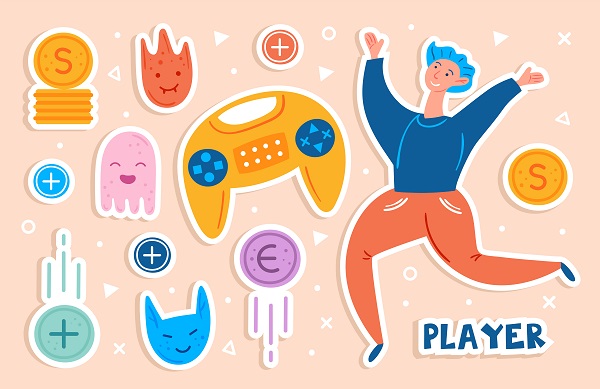
Is it Bad to Play Video Games for 10+ Hours?
When deciding how much time your child should spend playing video games, you should consult their teachers, pediatrician, and other health professionals to decide if their current video game consumption affects their health or success in school. From there, determine what a reasonable amount of game time looks like.
According to the American Academy of Pediatrics, children should not be getting more than two hours a day of screen time; this should be less for those under the age of six. This is backed by a scientific report that revealed that once kids pass the “three hours a day” mark, they start to show negative effects.
Therefore, if your child plays video games for over ten hours a day, it is likely that they will experience adverse effects soon, if not already.
How to Control Your Child’s Gaming
Once you have decided your child’s gaming has become a problem, it is up to you as the parent to find a way to end the addiction and control the time they spend on the computer. There are a few different ways to do this that have been effective for many families:
Track Your Child’s Gaming
Keep a log of when your child gets on and off their games. Do not say anything to them at first; just make a note of this for a week. At the end of the week, add up the hours and then confront your kid with the results. You would be surprised as to how many people honestly do not realize how often they play.
Now that you have the hours in front of you set a reasonable amount of playtime for your child. Let them be part of the decision-making and be willing to come to a mutual agreement. Letting your young gamer feel like they control the situation will cause less conflict and show better results.
Create Limits and Laws
Without making your child feel attacked, set regulations on the amount of time they are allowed to use the computer and what times of the day are appropriate. Setting reasonable guidelines can help you control the amount of time available to play on any gaming console.
Some examples of guidelines you can set include:
- No games before dinner: Setting clear guidelines on what times are okay will give your child a clear limit and the freedom to jump on as soon as they are allowed.
- Homework and chores must be done first: Children need to know that responsibilities take priority over a game.
- No games at least one hour before bed: Reducing game time before bed not only reduces overall playtime but also stops gaming from causing sleep-related health problems.
- Missed school, no game: If your child is caught skipping school or misses it due to illness, they should not be allowed to play video games.
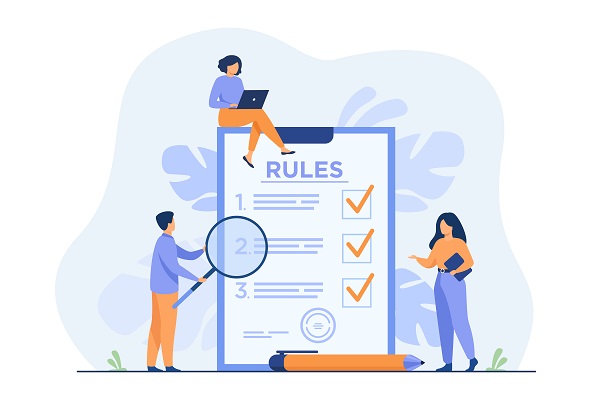
Turn Gaming into a Reward
Instead of having your child feel like they are being punished when you try and take away their game time, use game time as a reward system. For example, once their chores are completed, they earn an hour of game time.
Be a little relaxed with this during summer vacation and the weekends, keeping the time reasonable but still allowing your child to enjoy playing a little longer than they usually can when they have school.
Stay Strong
The chances are high that your child will protest when you first start to limit game time. Temper tantrums may be in your future, but you cannot give up, and you cannot give in. You have to stand firm in your decision and show your child how serious you are and how concerned you are about their addiction.
Along with staying strong, you also have to stay consistent. If your new rules are “off for the night by 8 pm,” do not give in to the “Just one more level” or the “But my best friend just got on.” Even giving in once in a while is going to create problems for you in the long run. Your child will see there is a chance to keep playing every time.
If your child doesn’t follow your new rules, they have to suffer some consequences. Make sure this is something that is not going to punish you as well as your child. If taking the computer away for an entire week will cause you stress and aggravation, then only threaten to take it away for one day. Choose a punishment you can and will apply if your child doesn’t abide by the rules.
Put the Computer in a Common Area
You have a much better chance of sticking to the rules and tracking your child’s usage if you can see where they are at all times. Many issues parents face when keeping an eye on game time is “out of sight, out of mind.” Your kid isn’t in front of you screaming at the screen, so you are not aware of just how much time they are actually spending on their computer.
Placing the computer in an open area will also allow your child to know you are watching, and they will be more apt to keep track of the time they are on the computer and watch what they say and how they act while they are playing.
Help Your Child Find a New Hobby
Many kids spend an abundance of time playing online video games, mainly because they are bored. If you help your child find a new hobby, it may deter them from wanting to play on the computer.
This could even be a great time to find an activity you could both enjoy. Identify a hobby or activity that would interest you both, and then use that extra time to bond. Bird watching, nature walks—even puzzles can be a great way to spend time together.
Use Tools to Keep Track of Game Time
Using simple household items or schedules to keep track of gaming can be helpful and effective. Grabbing a kitchen timer or even allowing playtime while watching your favorite TV show or during your hour walk will help you both know when game time is up.
Another great option for tracking time is downloadable apps and software. Purchasing an affordable and reputable software program such as Limit Launcher can remove all the hassle of limiting your child’s time on their games.
These types of parental control apps can let parents control their child’s computer from their phones, putting a time limit on their gaming without disabling their computer altogether. This is an excellent alternative to avoiding an argument by just unplugging your internet router. (Not only would this cause more drama in the end, but you also have to deal with no internet.)

Call a Therapist
Although this will probably be the last resort, sometimes calling a professional can be very helpful when you have nowhere else to turn. A therapist can provide you with some great advice and give you helpful tips and tricks to make the transition to reduced gaming much smoother for you and your child.
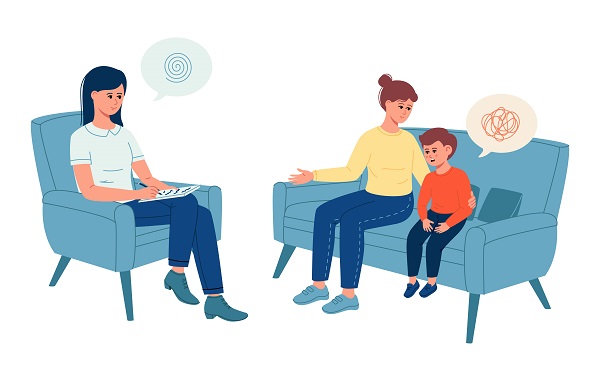
Our Take Away
Too much gaming can lead to serious consequences for your child’s physical and mental health and wellbeing, from depression to computer vision syndrome and carpal tunnel. These negative effects could be temporary or long-term and can become more severe in a child developing video game addiction.
You may become concerned about these adverse effects once you have noticed them in your child and be tempted to take away their video games as a result. However, you don’t have to resort to taking away video games entirely. Find a plan that helps reduce your child’s game time in a healthy way that keeps you both happy. Start by tracking their current time spent on video games and go from there.
Remember that gaming does not always have to be harmful. There are plenty of benefits from playing video games—as long as they are consumed in moderation. Too much time spent playing, and you will quickly see the adverse effects emerge.




